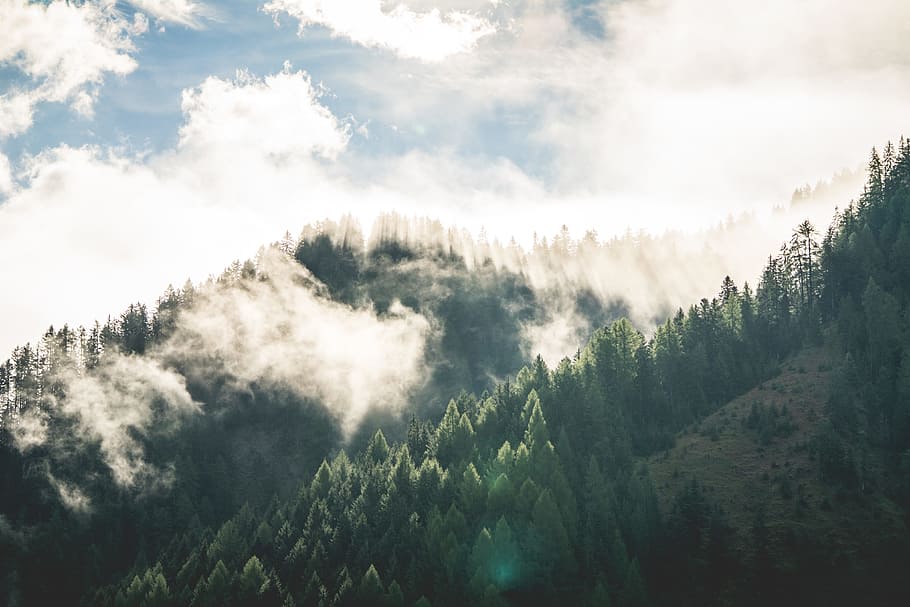Worldwide, our forests are facing challenges. With every passing moment, climate change is reaching closer to its saturation. The land is losing its fertility due to chemical abuse to meet the growing demands. Current land-use patterns can no longer support regenerative agriculture. Local communities, often the most susceptible segments, are stuck dealing with natural disasters like floods, droughts, large scale deforestation, cyclones amongst many other. The life-saving resources gifted to us by mother nature are in crisis.
This resource crunch is especially applicable in earth’s semi-arid topography. Semi-Arid or Arid Topography constitutes one-third of Earth’s land surface with 15% of the global population. With the growing demand for resources, these sensitive landscapes face intensifying environmental pressures and disturbance, mainly in the realm of water. No climate action is possible here without the holistic understanding of the geography, climate and geomorphology of this region. To get into the epicentre of the environmental crisis here and make a long-term impact, Grow-Trees partnered with organisations like FES who act as great monitoring and implementation tools across remote locations of India.
Take, for example, Kheda in Gujarat where Grow-Trees has been able to plant 72,000 trees over the course of 3 years. Grow-Trees partnered with FES here to leverage their extensive experience in remote locations of Gujarat. It recognizes that healthy forests are an integral part of everyone’s lives and with their strategic backing, Grow-Trees has been able to breathe new life into the ruined ecosystem of this region. Grow-Trees opts for such a model of multi-stakeholder beneficiaries for the long-term sustainability of both, project and trees. The technical knowledge provided to implementation partners like them is imparted to local communities who are ultimately the true owners of the plantations conducted by Grow-Trees. Upon maturity of these trees, they ensure the sustainability and health of their surrounding region and continue to provide the many cultural, social and economic benefits that local communities depend upon.
You May Also Want to Read – The Role of Local Communities in Conservation
Understanding the process of planting – Kheda, Gujarat
Kheda, an area characterized by tropical rain forestry and semi-arid topography in Gujarat is endowed with a rich and diverse range of birds, reptiles, fishes, amphibians and trees. The region is also a host to a range of endangered wildlife species like the black Mahaseer, great Indian bastard, blue whale, etc. However, these animal species are now witnessing large scale decline due to an incessant habitat loss. The soil is losing its productivity due to the massive flooding and sedimentation occurring on the banks of river Mahi.
Fortunately, the growth of trees in association with FES is helping here majorly in counter-attacking the factors rendering soil infertile here.
But, you must be wondering, how does this even take place?
Grow-Trees lends it’s valuable technical and on-field knowledge to organisations like BGDV, who eventually act as mobilization, monitoring and implementation partners across sites where they hold extensive working experience. Their local field experience helps them in mobilizing the rural and tribal communities by making them realize the social, cultural, economical and environmental benefits of trees. Community mobilization is the key to making any project sustainably viable. Communities are made to understand the economic benefits of trees in the local run along with regular demonstrations and training sessions held on scientific planting techniques. This is followed by the plantation activity which is undertaken by local villagers with the supervision of Grow-Trees and FES. They train the communities for all the activities from pit-digging to the maturity stage. Their work is primarily to hand-hold the communities for one year, post which they are skilful enough to take care of trees on their own. After the plantations, FES involves panchayats in the training for the monitoring of the trees in the long run.
Together with FES, we have committed to sequester carbon in the sub-tropical lands of Kheda, Gujarat. With each tree planted, we are one step closer to the shared goal of a greener tomorrow.
If you want to adopt any such plantation project, write to us at info@grow-trees.com
